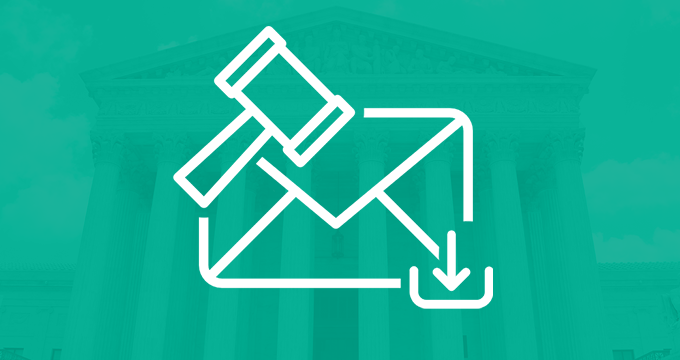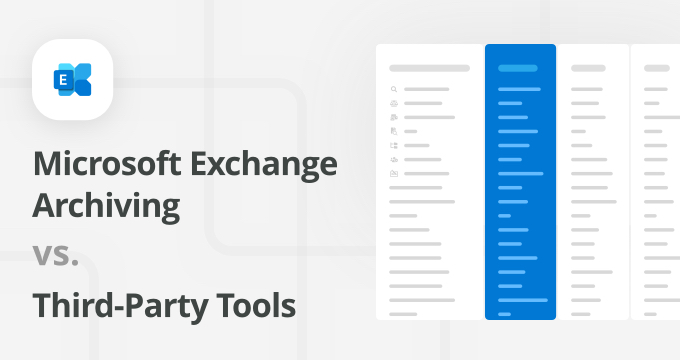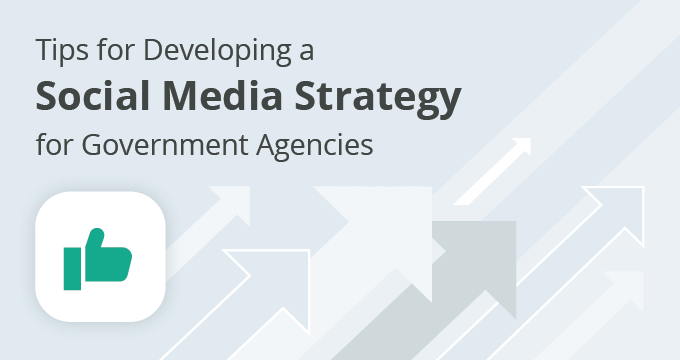Sunshine laws are designed to keep government operations open and accessible to the public.
Their goal is to promote transparency, accountability, and trust between officials and the communities they serve.
This guide breaks down:
- How these laws work at the federal and state levels
- Their importance, requirements, key exemptions, and variations across the U.S.
- What businesses need to know to stay compliant
What Are Sunshine Laws and Why Do They Matter?
Sunshine Laws are legal mandates requiring government operations to be done with transparency and public access.
These laws, sometimes referred to as the Sunshine Act (a specific federal law), guarantee public access to government meetings, records, and decision-making processes. Their foundational principle is simple: public scrutiny is essential for a healthy democracy, ensuring government decisions are made with the public’s interest in mind.
The modern push for these laws originated in the United States, fueled by a growing public distrust of government in the post-Watergate era of the 1970s. By reducing secrecy and boosting visibility, they help prevent corruption and build trust between officials and citizens.
The development of this legal framework is marked by several key milestones:
- Freedom of Information Act (FOIA) — Enacted in 1966, it establishes a public right to request and access federal executive-branch records, setting a national standard for government transparency.
- Government in the Sunshine Act — Passed in 1976, this law requires many federal government agencies to conduct their deliberations and actions in public sessions, ensuring citizens can observe the decision-making process firsthand.
- State-Level Sunshine Laws — Following the lead of the federal government, most states enacted their own laws throughout the late 1970s and 1980s to ensure open meetings and public records access at the local and state levels.
This legal framework has continued to evolve, adapting to the challenges of the digital age, including managing digital records and remote meetings. It continues to expand to address new demands for public participation and accountability, particularly in public–private partnerships.
What Are the Core Components of Sunshine Laws?
Sunshine laws typically include three main elements:
Open-meetings requirements
Government bodies like city councils, school boards, and commissions must hold meetings in public. They must announce the date, time, and location in advance, provide an agenda of topics to be discussed, and offer opportunities for public comment. This ensures decisions are made transparently, with the community able to see and respond to proposals before they’re finalized.
Public-records access
Most documents produced or held by public agencies, such as contracts, reports, meeting minutes, and emails, are presumed public. Citizens or businesses can file formal requests to access them, and agencies are typically required to respond within a set timeframe. If a request is denied, there’s usually an appeals process.
Notice and agenda rules
Sunshine laws often require that meeting notices and agendas be posted in specific ways, through official websites, local newspapers, or public bulletin boards, so that the public is aware and has a chance to participate.
Who Must Comply with Sunshine Laws?
The scope of sunshine laws is broader than many realize. They generally apply to government bodies and officials at all levels — federal, state, and local.
This includes elected bodies like city councils and school boards, administrative agencies and commissions, and publicly funded institutions such as state universities and hospitals.
Advisory committees can also fall under these rules if they are created by or report to a public body and have decision-making authority. Quasi-governmental organizations, such as public–private partnerships or economic development authorities, may be covered if they use taxpayer funds or set public policy.
Private businesses aren’t directly bound by sunshine laws, but there’s an important caveat: any documents they submit to a public agency, such as bids or performance reports, can become public records unless they contain information protected by an exemption (e.g., trade secrets).
Are There Exceptions to Sunshine Laws?
While transparency is the goal, sunshine laws recognize the need for confidentiality in certain circumstances. Common exemptions:
- Personal privacy — Information about specific individuals, such as personnel files or medical records, is protected.
- Legal strategy and litigation — Government bodies may meet privately to discuss pending lawsuits or receive legal advice without revealing strategy to opposing parties.
- National security and public safety — Sensitive security information, like infrastructure vulnerabilities or emergency response plans, can be withheld to protect the public.
- Trade secrets and proprietary data – Businesses’ confidential information submitted during procurement processes is often exempt to prevent competitive harm.
- Confidential investigations — Ongoing audits, ethics probes, or disciplinary actions may remain closed until completed to ensure fairness.
Even when an exemption applies, agencies are often required to cite the legal basis and release any non-exempt portions of a record.
Why Sunshine Laws Extend Beyond Government
Sunshine laws have increasingly extended their reach into the private sector. In most cases, they affect businesses that interact with public entities or operate in regulated industries.
Private sector applications
Some states extend sunshine laws to certain private entities with close ties to the government, like public utilities or organizations receiving significant public funding.
This creates a complex landscape where private companies can find themselves subject to public disclosure requirements based on their relationship with government entities.
Healthcare industry sunshine laws
The healthcare sector represents one of the most significant expansions of sunshine principles into private industry.
The Physician Payments Sunshine Act requires “applicable manufacturers” and GPOs to report certain financial relationships to the Centers for Medicare & Medicaid Services (CMS). This law mandates that pharmaceutical and medical device companies disclose payments made to healthcare providers, creating more transparency in industry-physician relationships.
Pharmaceutical companies must now publicly report any money or valuable items they give to doctors, teaching hospitals, and other medical professionals. This has completely changed how these companies interact and build relationships with the medical community.
Corporate reporting
Beyond healthcare, sunshine principles extend to financial markets through securities regulations.
Public companies have to follow sunshine laws by reporting important information to the Securities and Exchange Commission (SEC). This rule ensures that investors have access to crucial information that might affect their decisions, which is a key principle of transparency.
Public-private partnerships
The increasing number of public-private partnerships has created new challenges for applying sunshine laws.
If private companies take over government work, then tax dollars move into the private sector without a check on how they are spent. If private entities are never subject to public records laws, the government can circumvent those laws by turning government work over to private companies.
Courts have developed various tests to determine when private entities performing government functions should be subject to sunshine requirements.
State-Level Variations in U.S. Sunshine Laws
The federal Sunshine Act provides a national framework, but each of the 50 U.S. states has enacted its own state sunshine laws. This has created transparency requirements that vary significantly in scope, enforcement mechanisms, and implementation.
Terminology varies widely across states. Here’s a quick breakdown:
- Sunshine Law: Used in Florida, Missouri, South Dakota, and Wyoming.
- Freedom of Information Act (FOIA): Used by Arkansas, Connecticut, Delaware, Illinois, Michigan, South Carolina, Virginia, and West Virginia
- Public Records Act/Law: Used by Alaska, Alabama, Arizona, California (CPRA), Idaho, Louisiana, Massachusetts, Mississippi, Montana, North Carolina, Nebraska, Oregon, Vermont, and Washington
- Public Information Act (PIA): Used by Maryland and Texas
- Right to Know Laws: Used by New Hampshire and Pennsylvania
Key areas of variation
Response time requirements
States differ dramatically in their response time requirements. Arkansas government entities have just 3 days to respond to requests, while Wyoming allows up to 7 days. Virginia, and West Virginia allow up to 5 days to respond, while Iowa agencies must respond within 10-20 days. On the other hand, Florida and South Dakota dictate no specific deadline for public records responses.
Scope of coverage
There are significant variations in which branches of government are covered. FOIA requests apply to all three branches of government in Arkansas, Connecticut, Delaware, Illinois, South Carolina, and West Virginia. However, in Washington, D.C., the judicial branch is exempt from FOIA requests, and Florida’s executive branch is exempt from its sunshine law.
Free structures and waivers
States take different approaches to fees for processing requests. Sunshine laws in Missouri and South Dakota allow fees to be waived for requests serving the public interest, but Florida and Wyoming do not allow these waivers. Maryland and Texas government agencies may collect fees related to processing public records requests, and these fees can be waived when appropriate.
Enforcement mechanisms
Perhaps the most significant variation is the enforcement mechanisms.
A nationwide review by The Associated Press and CNHI News revealed that fewer than a third of states have offices that can resolve residents’ complaints by forcing agencies to turn over documents or comply with open meetings requirements.
The enforcement landscape varies dramatically.
Strong enforcement states:
- Connecticut: The Connecticut Freedom of Information Commission receives and adjudicates complaints about alleged violations, can issue orders requiring agencies to release records, and can impose penalties, including fines and mandatory training.
- Texas: The Office of the Attorney General plays a central role, with agencies required to appeal to the office before denying records requests. The office issues decisions and can impose financial penalties.
- Hawaii: The Office of Information Practices can issue enforceable opinions in disputes, which can be appealed in court.
Limited enforcement states:
- California: Generally, the only avenue for resolving disputes is to sue, with no ombudsman or equivalent office to adjudicate disputes.
- Colorado: Has no independent office that adjudicates complaints, with lawsuits being the only option for residents.
- Alabama and Alaska: The only avenue for resolving complaints is to file costly lawsuits.
Penalties for non-compliance
Penalty structures also vary a lot. In Missouri, agencies can be fined up to $5,000 for non-compliance, while in Wyoming, fines are capped at $750. The Texas Open Meetings Act carries criminal penalties (e.g., for knowingly participating in a closed meeting), which may include fines and, in some cases, jail time.
Implications for businesses and organizations
These state-level variations create compliance challenges for organizations operating across multiple jurisdictions. Businesses must understand that some states might extend these laws to certain private entities with close ties to the government, such as public utilities or organizations receiving significant public funding.
The variation in enforcement mechanisms is particularly important for businesses to understand. In states with strong enforcement agencies, non-compliance can result in swift administrative action, while in states requiring litigation for enforcement, the risks may seem lower but can result in more significant legal costs.
What Sunshine Laws Mean for Your Business (and How to Adapt)
Understanding sunshine law requirements is only the first step. The complexity of these laws, particularly when operating across multiple jurisdictions, means that businesses must plan and implement systems to ensure compliance while maintaining operational efficiency.
Develop a comprehensive compliance framework
Handling electronic records and making sure they’re easy to find when the public asks for them is becoming a bigger challenge. The first step for businesses is to review their sunshine law requirements across all jurisdictions where they operate.
Companies should evaluate whether they fall under these extended definitions and understand the specific requirements in each jurisdiction.
Implement record-keeping systems
Defining what qualifies as a public record under sunshine laws can be tricky, particularly as communication methods keep multiplying.
Typically, public records include the following:
- Emails — Any email sent or received by a government employee or official that discusses public business is a public record. This applies to emails sent from both government and personal email addresses. For example, a city council member using their personal email to discuss a zoning issue is creating a public record.
- Text messages and chat apps — Text messages, iMessages, and messages sent through apps like WhatsApp, are increasingly being recognized as public records if they are used to conduct official business. This is true even if the text is sent from a personal cell phone.
- Social media — Posts and comments made by officials on social media platforms like LinkedIn, Facebook, Instagram, or X can be considered public records if they relate to government activities or policy decisions. For example, a police chief tweeting about a recent crime report is a public record.
- Files, attachments, and other digital records —This can include a wide range of electronic content like audio and video recordings of Zoom meetings, files stored on a government server or a cloud service, information in a government database, instant messages or chats on platforms like Slack or Teams, calendar entries, files on OneDrive or Google Drive.
Businesses must establish clear policies for document creation, retention, and classification.
Key considerations for record-keeping systems:
- Document classification — Create simple guidelines that spell out what needs to be made public and what qualifies for an exemption. Make sure employees know how to label documents properly as soon as they’re created.
- Retention policies — Develop retention schedules that balance legal requirements with practical storage limitations. You need automated systems to effectively manage, store, and retrieve all these different types of electronic records.
- Search and retrieval capabilities — Implement systems that allow for efficient searching and retrieval of records to respond to requests within required timeframes.
- Electronic communications management — Given that emails and other electronic communications may be subject to disclosure, establish clear guidelines for business communications and implement archiving solutions.
Ensure digital compliance with the right technology solutions
Digital tools can make handling public records requests much easier. Online request portals and electronic formats speed up access and cut down on wasted time.
Cloud storage solutions bring scalability and advanced search capabilities, but both businesses and agencies must ensure that their cloud providers can meet sunshine law requirements for record preservation and retrieval.
The rise of new communication channels makes it harder to know how transparency rules apply. As these requirements become more complex, technology is key to keeping up.
Train your employees
For successful sunshine law compliance, you need more than just systems and processes — you need a culture of transparency and awareness throughout the organization. Training employees is crucial for mitigating risks and ensuring consistent compliance across all business units.
Training programs should cover:
- What business activities may trigger sunshine law obligations
- The creation of the document and classification procedures
- Communication guidelines when interacting with government officials or public entities
- Procedures for handling public information requests
- Knowing what information is protected and what the exemptions are
Ensure proactive compliance management
Businesses can manage sunshine laws better if they understand the main sources of regulations, work with regulators, and stay proactive with policies.
Successful compliance requires ongoing vigilance and adaptation. Businesses should:
- Monitor regulatory changes — Establish systems to track changes in sunshine law requirements across all relevant jurisdictions.
- Engage with industry groups — Participate in industry associations and compliance groups to stay informed about best practices and emerging trends.
- Regular audits — Conduct periodic internal compliance audits to identify gaps and ensure systems remain effective.
- Legal consultation — Maintain relationships with legal counsel familiar with sunshine law requirements in your operating jurisdictions.
How Jatheon Can Help
To comply with sunshine laws and meet the prescribed deadlines, you need to be able to store records securely and in an organized way, plus search them quickly.
Jatheon’s archiving solution allows government agencies, public institutions, and regulated organizations to store and retrieve emails, files, Zoom and Team meetings, and 25+ other communication channels quickly when responding to public records requests.
Advanced search tools, retention scheduling, and automated classification make it easier to meet deadlines, comply with varying state requirements, and protect exempt information. With secure cloud options, Jatheon helps organizations maintain transparency while reducing the operational burden of compliance.
Summary of the Main Points
- Sunshine Laws require open government operations, giving the public access to meetings, records, and decision-making to promote accountability and trust.
- Most laws cover open-meetings rules, public-records access, and notice and agenda posting requirements.
- These laws apply to government bodies at all levels, publicly funded institutions, some advisory committees, and in some cases, quasi-governmental or public–private entities.
- Businesses may be indirectly affected if they submit documents to public agencies or directly covered if they perform government functions or receive public funds.
- Common exemptions include personal privacy, legal strategy, national security, trade secrets, and ongoing investigations, with non-exempt portions typically still released.
- Deadlines to produce records vary by state and range from 3 days (Arkansas) to 20 days (Iowa), with some states having no set limit.
- Using specialized software, such as an archiving solution, is essential for businesses and agencies to efficiently manage, search, and retrieve all types of electronic records.
FAQ
What’s the difference between the Freedom of Information Act and the Government in the Sunshine Act?
FOIA gives the public the right to access federal agency records, while the Government in the Sunshine Act requires certain federal agencies to hold public meetings. FOIA focuses on documents; the Sunshine Act focuses on meetings.
Do sunshine laws apply to private companies?
Generally, no, but a private company can be subject to these laws if it performs a government function, receives significant public funding, or submits documents to a public agency that aren’t protected by an exemption.
Can a government agency deny a request under sunshine laws?
Yes, if the request falls under an exemption such as personal privacy, national security, legal strategy, trade secrets, or ongoing investigations. Agencies must cite the specific legal basis for denial and release non-exempt portions when possible.
Are emails considered public records under sunshine laws?
In most states, yes. Emails and other electronic communications related to public business are typically subject to disclosure, even if sent from personal devices, unless an exemption applies.
Can sunshine laws be applied to meetings held online or by video conferencing?
Yes. Many states have updated their laws to include virtual meetings, requiring public notice, access links, and, in some cases, opportunities for remote public comment.
Read Next:Text Message Archiving for Government – Laws & Top Tips |











